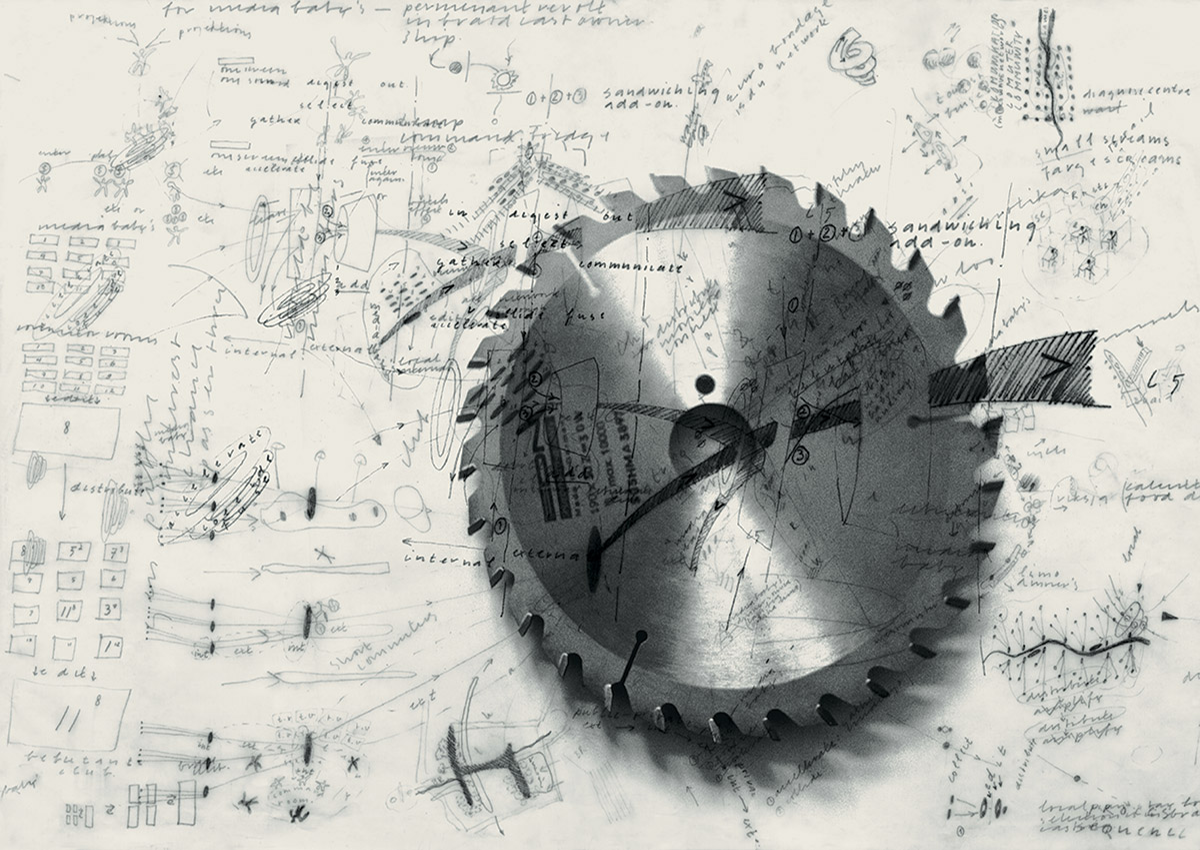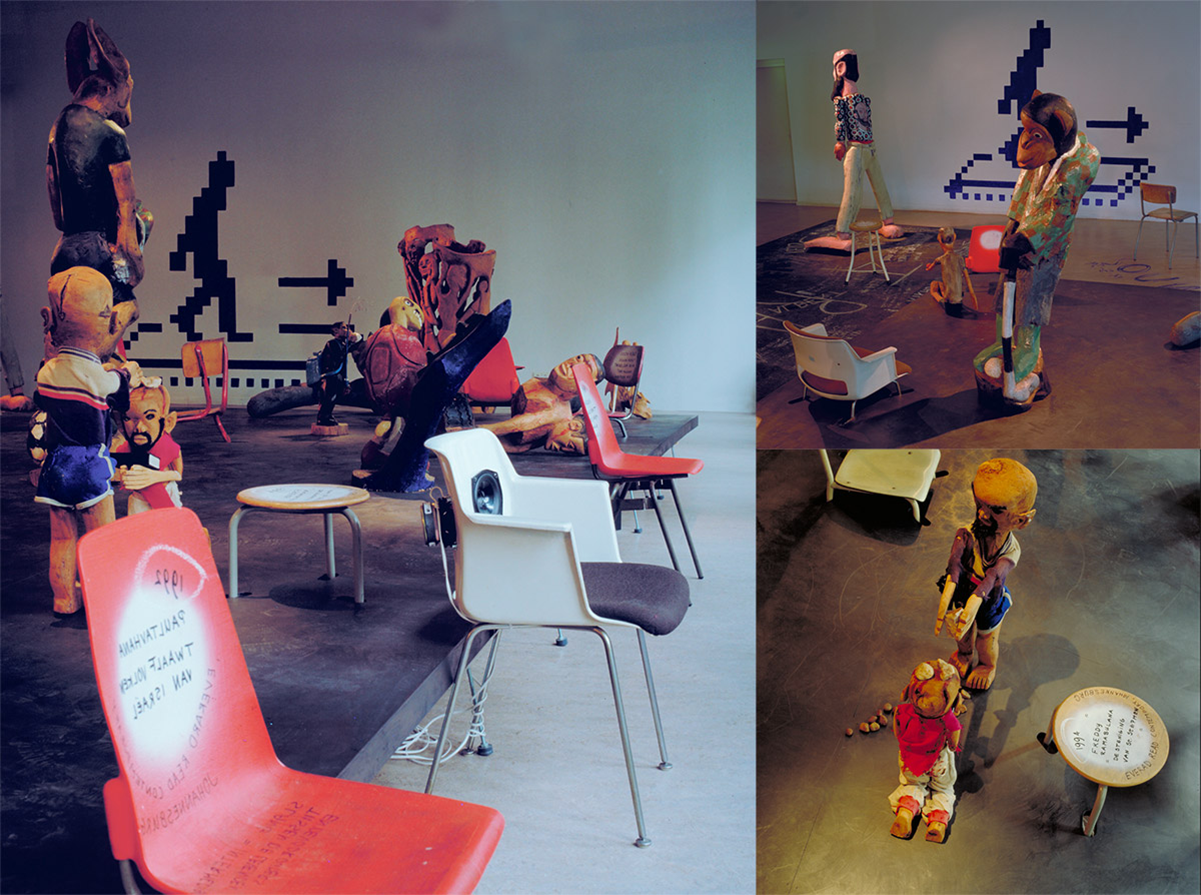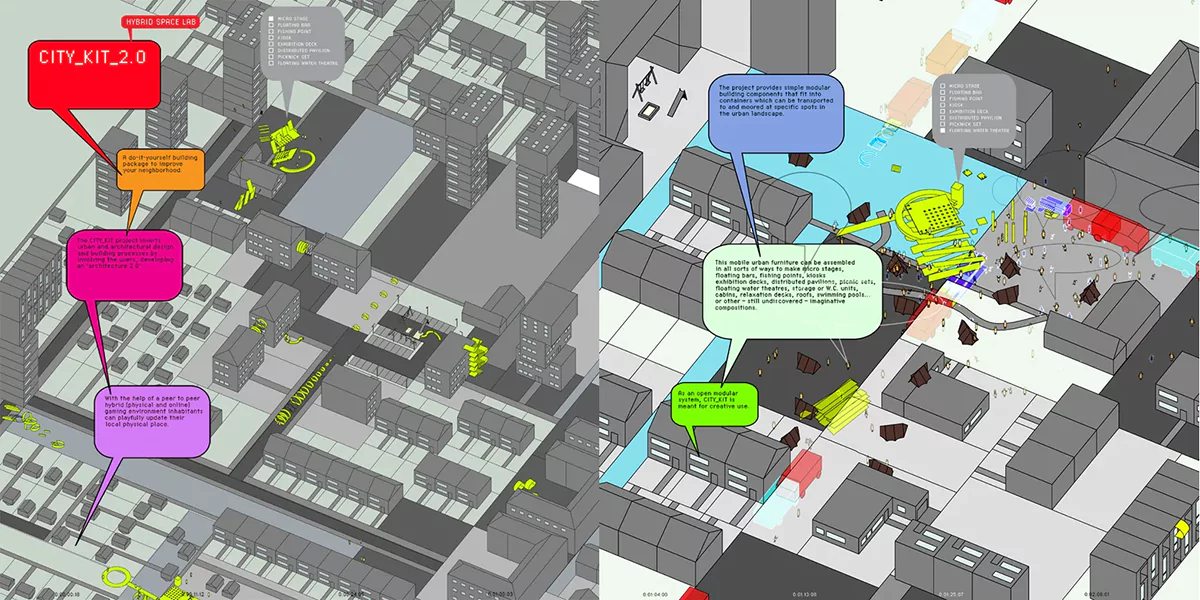Interview with Hybrid Space Lab by the STRELKA Institute in Moscow for the Future Urbanism project.
Forty one interviews with contemporary writers, architects, sociologists, economists and city planners“Future Urbanism” project.
Anastassia Smirnova, Programming Director, Strelka Institute
Interview Future Urbanism @ Strelka Institute for Media, Architecture and Design, Moscow, 15 December 2013
Introduction
To speculate on the future we need first to look back, and here is something I’ve noticed: as science and technology progress, life as a whole becomes ever more integrated, intermixed, complex and diverse. This general trend reflects on all aspects of our existence: culture, politics, economics, etc. and, of course, on cities. One of the most significant achievements of the 20th century – network technologies – have provided our planet with a totally new digital layer: virtual reality. This has given rise to a whole new sphere of interplay between urban and media networks. Communication networks are changing our society. Perhaps for the first time the general public is getting a chance to participate in urban design beyond the mere post factum.
All these processes need an urbanism based on dynamic fusion, a splicing and intertwining of the internal and external, local and global, random and logical, etc. How can we prepare cities to meet the random, diverse and unexpected, without descending into chaos? How to enjoy the advantages of this era of globalisation and not lose our local identity? And to what extent do we need to preserve it? I guess hybridisation of all sorts is the key.
So, I decided to ask the opinion of professionals who have been exploring this issue for more than 20 years. Prof. Elizabeth Sikiaridi and Prof. Frans Vogelaar are founders of the Hybrid Space Lab, an r&d and design practice focusing on the hybrid fields that are emerging through the combination and fusion of environments, objects and services in the information-communication age. The scope of their research, development and design projects ranges from those on urban games and urban planning to buildings, architectural interiors and industrial design applications and wearables. Elizabeth Sikiaridi lectures on design in the urban landscape at University of Duisburg-Essen in Germany and Frans Vogelaar is Head of the Department of Hybrid Space at Cologne’s Academy of Media Arts in Germany.
Anastassia Smirnova, Programming Director, Strelka Institute, Moscow
It’s
Hybrid
Time
Interview
Elena Mazina
Frans, you grew up in Zimbabwe and Holland; Elizabeth, you grew up in Athens; you now both work internationally, especially in Asia. How did your socialisation influence your perception of South, East and West?
Frans Vogelaar: Our socialisation as well as working together and combining our different points of view make us very interested in cultural hybridisations.
Elizabeth Sikiaridi: Typically for our global post- colonial hybrid civilisation, a cultural mix and fusion is emerging which subverts the former cultural hierarchies which were dominated by the earlier colonialising cultures. This fosters cultural hybridisation, meaning the dynamic development of new hybrid cultural expressions.

Elena Mazina
Elizabeth, you studied architecture and urbanism in France and Germany and you are teaching landscape architects; Frans, you studied industrial design in Holland and architecture in London, you have been working intensively with media and are teaching at the Academy of Media Arts. How have your mixed professional backgrounds affected your work in Hybrid Space Lab?
Frans Vogelaar: This mixed professional background enables us to approach space in an integrated way. Hybrid Space Lab is an interdisciplinary environment where architects, urbanists, landscape architects, designers and media artists collaborate with soft– and hardware engineers in the development of projects for combined analog and digital, urban, architectural, design, and media spaces. We think that this approach is becoming more and more relevant today – think of the challenges of sustainability.
Elizabeth Sikiaridi: Today, we are also experiencing a merging of creative fields. This is to be seen, for example, in contemporary art practices: Painting and sculpture come together with video, film and sound, and various media fuse within a single artistic project.
Frans Vogelaar: Also taking place today is an even more radical merger: Supported by computer technologies, we are therefore experiencing a hybridisation of environments, objects and services – and thus a hybridisation of the fields involved in design: architecture and (landscape) urbanism, object design, service design, communication design…
Elena Mazina
In your lecture Hybrid culture in Copy/ Culture Beijing you mentioned innovation strategies. Why is innovation of relevance? And could you say something about your innovation strategies?
Frans Vogelaar: Innovation is not a goal in itself, but a means of coping with and steering developments. Hybridisation is an evolutionary strategy to develop new solutions for the changing environments of our fast- moving world.
Elizabeth Sikiaridi: Mixing fields, combining expertise and considering environments in their multiplicity of dimensions is for us a method for finding new relevant solutions to increasingly complex spatial design challenges. We investigate current developments in the general fields of culture, communication, production, exchange (markets), as well as technological innovations, not primarily to monitor market development but in order to generate visions. We approach technological developments from the perspective of the designer, the architect and the urbanist, by “inhabiting technology”, by transforming these technological developments to meet the way we want to live.

Elena Mazina
Participatory urban and architectural design systems are – in the context of a networked society – increasing in relevance. According to Vanessa Quirk, “Pop- Up,” “DIY,” “Kickstarter”, etc. – all these types of DIY Urbanisms are getting more and more popular these days. The DIY movement, facilitated by the use of technology, is excellent for getting people involved, for encouraging important, innovative ideas, however, – in the short- term. How does your concept of Soft Urbanism differ from that?
Frans Vogelaar: The concept of Soft Urbanism, which we formulated in the mid 90s, is more general. The starting point and spearhead of our work lies in the fusing of digital and analog environments, in embedding media networks in urban, architectural, social and cultural space. Soft Urbanism has as its starting point the fact that in architecture’s role of defining and materialising the spaces for social interaction, designing the relationship between the physical and digital public domain is becoming more and more of a challenge. It also therefore, for example, addresses urban communication strategies and urban branding.
Elizabeth Sikiaridi: Soft Urbanism also reflects the changes in the role of the expert. Soft strategies intervene in the realm of infrastructures, bringing an inherently flexible approach by expanding the field of possibilities of social interaction and opening new paths of urban development. Urbanism is about creating frameworks for processes of self- organisation. The planning process is being exteriorised. Planning institutions are opening up or even inverting as planning increasingly develops into the steering of a public discussion process.
Elena Mazina
Your project CITY KIT, developed for the Hong Kong Social Housing Authority, is a combined urban- computer game for upgrading your neighbourhood. How can computer games affect future urbanism?
Elizabeth Sikiaridi: Computer games are one of the possibilities for involving the public in the shaping of our environment. And urban/ regional planning, as public communication about our environment, is becoming increasingly important within the socio- political process of developing communal visions.
Frans Vogelaar: Our CITY KIT project has as a target group young people who are spending more time playing computer games then exploring the outside world. The CITY KIT game sets the goal of getting these people involved in their physical environment and support them in socialising in their neighbourhood instead of just in cyberspace.

Elena Mazina
What is, in your opinion, the importance of locality?
Elizabeth Sikiaridi: In our globalised world, where global space is just a finger swipe away, the importance of belonging to a local environment and a local community is growing.
Frans Vogelaar: In the future, the ecological and social footprint of our footloose society will require greater consideration. This will generate a new range of locally related media applications and environments and location- based services (‘Facebook’ to ‘Spacebook’). Such hybrid environments, fusions of the real and the virtual, will focus on neighbourhoods, localising services and linking them to the global, while supporting innovation on the local level.
Elizabeth Sikiaridi: As the world grows together through travel and tourism, through the internationalisation of markets and through media- based globalisation, global culture is invading local environments. On the one hand, traditional cultural differences are being flattened out. But on the other hand, as the individual locality gains in importance, processes of cultural fusion are generating new possibilities for cultural morphing and powering the creative potential of cultural hybridisations.
Frans Vogelaar: Accelerated by the current economic crisis, we are experiencing the rapid decline of Western hegemony. Recently industrialised countries such as China or India are entering the international market as new players. The emerging cultures that are increasingly contributing to global production and discourse will bring their own influences to bear on our common heritage – fostering hybrid – glocal – cultures in the process.
related PROJECTS
related PRESS